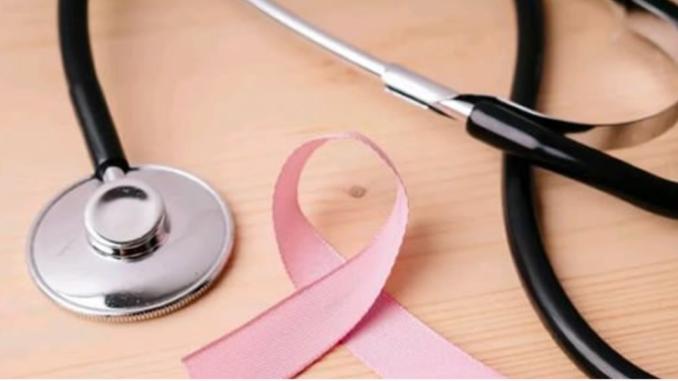
I am elated that discussions around cancer seem to be gaining ground and gradually coming to the fore. Cancer has been with us for decades, from the days of information darkness, through the days of almost non-existent transport system to the present day global home, driven by information and technology where everything comes with seamless ease. Technology and human drive to innovation have come to stay. This permeates our everyday struggle for survival and a decent living. One germane factor to survival is good health and like they say, ‘health is wealth’. However, a major challenge that has bedevilled us in Nigeria for some time now is cancer, coupled with information and awareness about it, threats to survival that it comes with, cost of management and treatment especially to the middle class or low income earners amongst our populace.
Cancer is a leading cause of death globally. According to the World Health Organisation, more than 70% of all cancer deaths occur in low and middle income countries, where resources available for prevention, diagnosis and treatment of cancer are limited or non-existent. Nigeria falls into this category. As a country of over 200 million people with one of the world’s highest cancer death rates, approximately four out of five cancer cases result in death. In 2018, about 115, 950 Nigerians were diagnosed with cancer and 70, 327 died from the disease, according to figures from Global Cancer Observatory – up from 102,079 new cancer cases and 72,000 cancer deaths in 2012. To paint a more graphic picture, Nigeria has only nine cancer treatment centres with only four radiotherapy machines. That is like
Worthy of note, breast cancer is one of the leading causes of death amongst Nigerian women and the most prevalent form of all cancers in Nigeria, comprising 22.7 per cent of all new cancer cases in 2018 and 37 per cent amongst women. Many factors contribute to the increase in cancer rates in Nigeria and the poor outcomes: cancer predisposing factors such as unhealthy lifestyles (smoking and high rate of alcohol consumption, environmental pollution), late diagnosis, poor access to healthcare and ill-equipped hospitals. A major issue is that most people cannot afford cancer treatment, be it radiotherapy, chemotherapy or surgery and that is why some under-served communities believe cancer to be a big man’s disease.
Discussion around cancer in Nigeria is shrouded in secrecy, information around such themes is almost absent in the media, stigma and lack of proper health education push a lot of sufferers into isolation and away from help. Most times, people see you as a ‘walking corpse’ once you are diagnosed with cancer. Some might even start counting down to the day of your ultimate demise. Indeed, cancer is a life-altering disease and every sufferer deserves all the love, support and care they can get.
Nigeria still lags behind in terms of budgetary allocation towards health with a 4.1 per cent of the national budget this year, a marginal improvement on the 3.9 per cent allocated in 2018. Even though it seems insignificant, it is an improvement and an indication that the tide is changing against cancer in Nigeria. More so, with the promise of focusing on improving the country’s facilities for the prevention, early diagnosis and treatment of cancer, the President, Major General Muhammadu Buhari (retd.) earlier this year inaugurated a new $11m cancer treatment centre at the Lagos University Teaching Hospital. In the same vein, Nigeria has moved to include cancer in its National Health Insurance Scheme. This is in order to reach as many Nigerians as possible through access to cancer care, prevention, early diagnosis and treatment.
Generally, there seem to be growing efforts and collaborations across all sectors to raise awareness on cancer prevention, diagnosis, treatment and control in Nigeria and this has led to the upspring of so many grassroots initiatives like Medicaid Cancer Foundation leading the charge. Medicaid was founded in 2009 by a renowned paediatrician and humanitarian, Dr Zainab Shinkafi Bagudu, to create awareness around cancer prevention, early detection, diagnosis, treatment and palliative care and has won so many laurels and recognitions from different local and international organisations to that effect.
Strategic programmes, events, interventions and victim support have been rolled out by Medicaid in the past with support and collaboration from international organisations, CSOs, governmental organisations and the media. The most recent event amongst many others was the National Walk against Cancer with the hash tag #Walkawaycancer. The event featured support from all First Ladies of Nigeria, including Mrs Aisha Buhari; Mrs Dolapo Osinbajo, wife of the Vice President, top Nigerians artists, actors and actresses, CSOs, INGOS, the media and Nigerians from different walks of life with one message: The fight against cancer is a collective one and everyone has a stake.
Other initiatives include Female Bikers Initiative founded by Nnenna Samuila and Jeminat Olumegbon in August 2017 to help create awareness of various female health issues, particularly breast and cervical cancer. “We are riding to change the culture of ignorance and reduce the mortality rate of women dying from cancer disease in Nigeria” says Olumegbon. Project Pink Blue founded by Runcie Chidebe, J-Rapha Hospital in Ibadan, Saphire Medicals in Port Harcourt, to mention but a few, have all lent their support through numerous advocacy efforts and free screening outreaches.
The threat of cancer is a grave one and should take the front burner in our national discourse. The media is a major stakeholder and should be setting agenda, themes, leading discussions, information dissemination on cancer, its threats, challenges, prevention, treatment and support with collaborations with all relevant stakeholders especially in a country like Nigeria whose population largely depend on the media to make sense of the world. With all these and a collective resolve to treat cancer as a national emergency, we can change the tide against cancer in Nigeria.
Mikail wrote from Jabi, Abuja
END

Be the first to comment